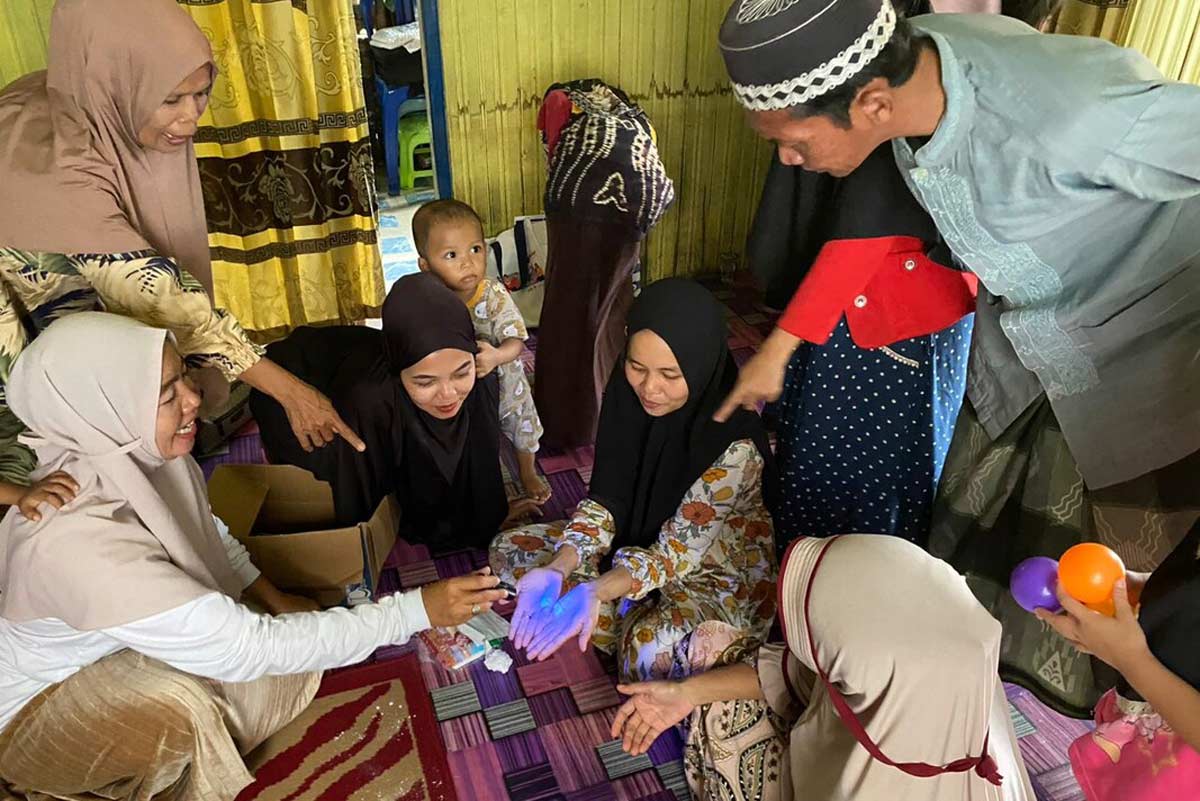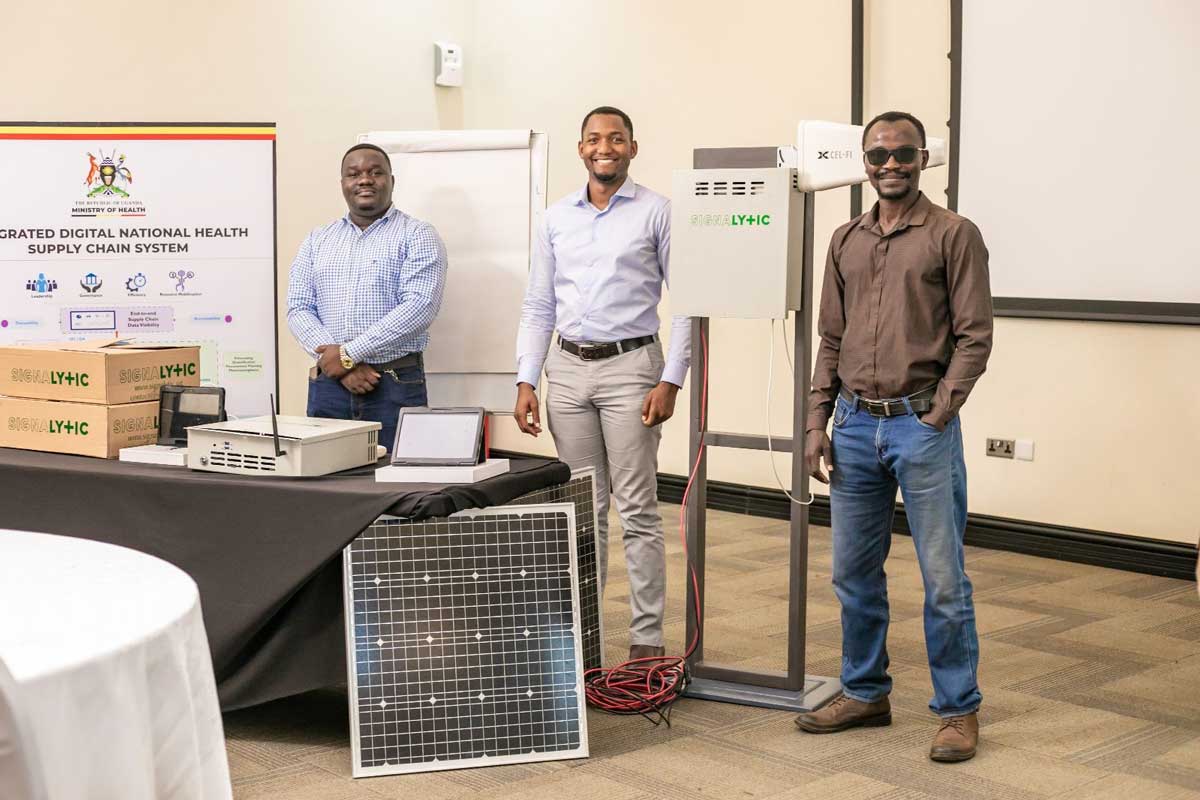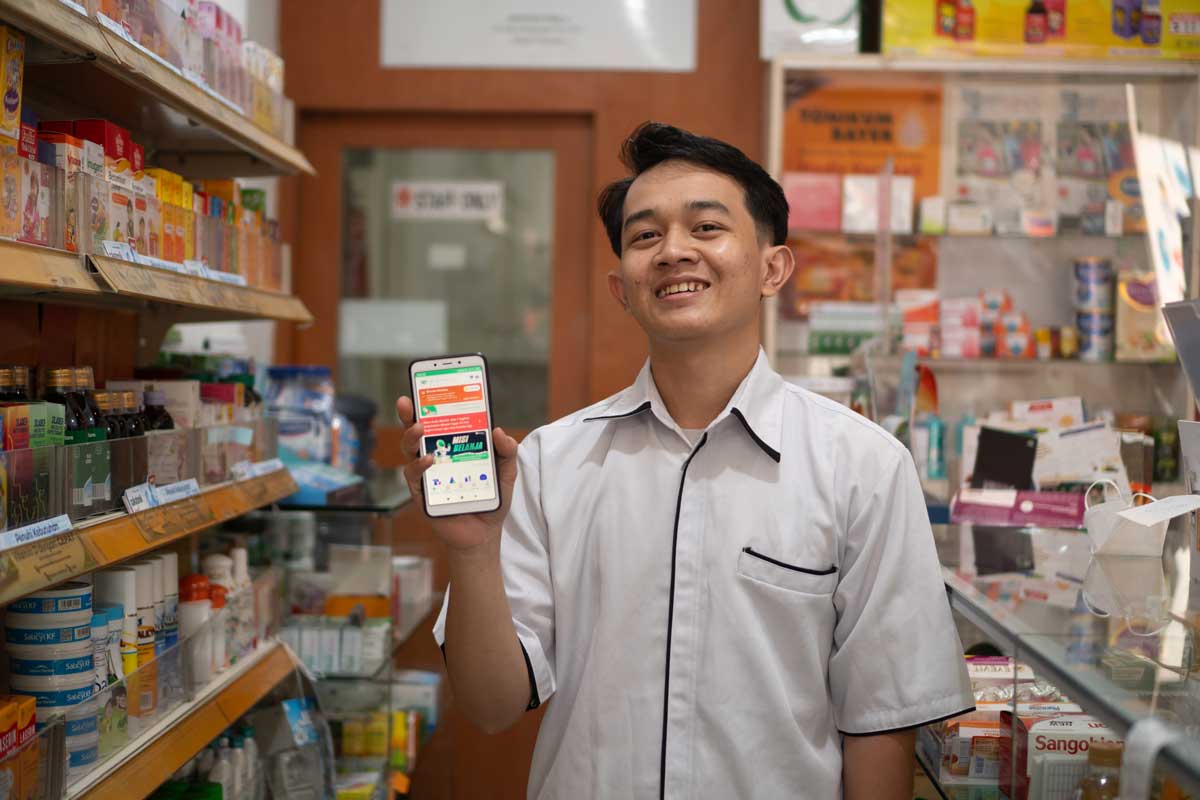Like Uber, but for the cold chain
How can we ensure that vital vaccines arrive at their destinations safely? VaccinesWork spoke to INFUSE winner Figorr to learn more about the Nigerian company’s approach.
- 18 November 2024
- 5 min read
- by Diane Abad-Vergara
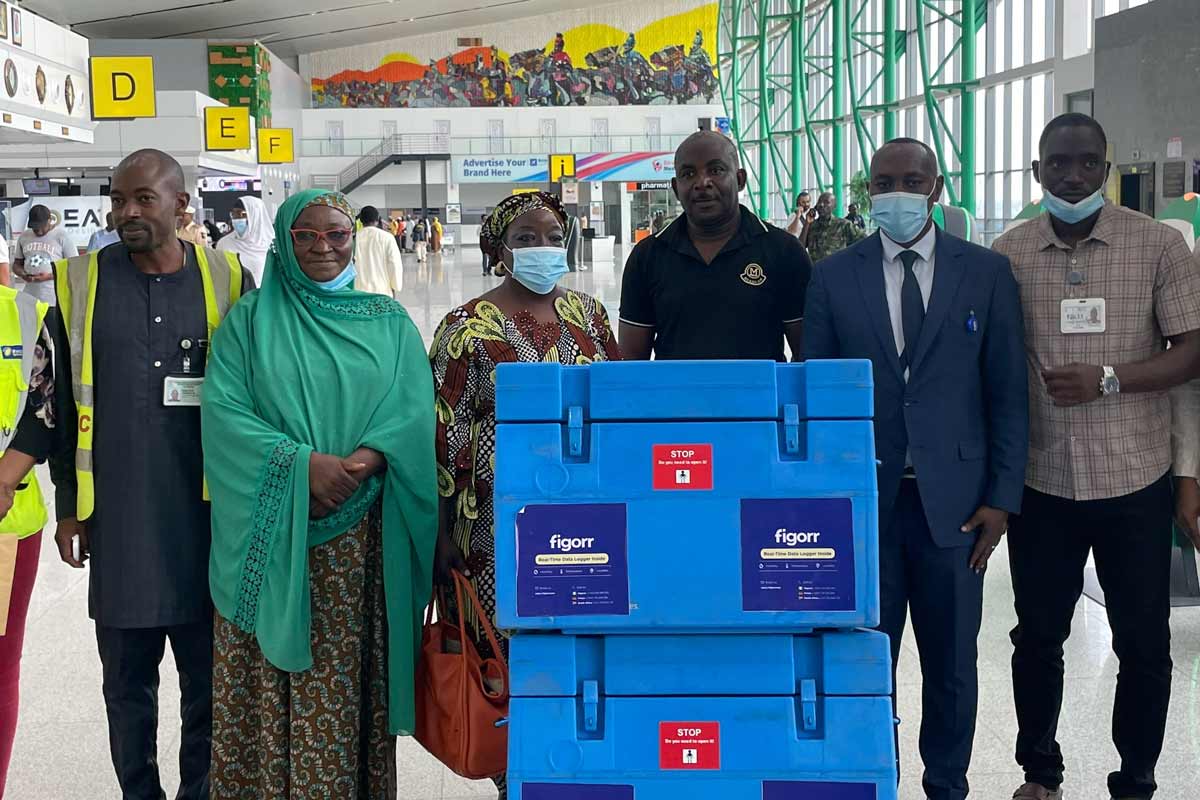
Picture this: a truck carrying vital vaccines breaks down in a remote area, risking the integrity of its temperature-sensitive cargo. In traditional logistics, this situation could lead to a catastrophic loss with potentially unrecoverable consequences for public health. Enter Figorr, whose platform provides real-time monitoring capabilities that allow operators to quickly visualise their options.
“Our system maps nearby cold storage facilities, enabling quick decisions to protect the product,” explains the founder and CEO of Figorr, Oghenetega Iortim. “It’s effectively like having an Uber for cold storage; you don’t own the assets, but you can access them when needed.”
Tackling real-world challenges
Figorr’s ‘Monitoring as a Service’ solution enables real-time tracking of perishable goods during storage and transit (integrating with any technology and hardware used), monitoring vital factors such as temperature, humidity, and location. The platform also allows users to share or rent cold chain infrastructure, significantly lowering operational costs. Additionally, Figorr supports cold-chain product dealers by supplying crucial data to insurance companies for underwriting policies and validating claims.
This level of flexibility does not just mitigate losses, it ensures that vaccinations, medical supplies and agricultural products remain in optimal conditions throughout their journey. With notification alerts sent via SMS or email, users can transfer their goods quickly to nearby facilities whenever a risk of temperature stability failure arises.
Nigerian born and bred, Figorr is changing the way temperature-sensitive products are able to be shepherded through an array of possible logistical nightmares. With its innovative tech-driven services, the company is striving to be a leader in safeguarding global health products, including vaccines and pharmaceuticals.
The user benefits are many. End-to-end visibility through real-time monitoring helps build trust by maintaining product quality and safety throughout the supply chain, and optimise resource-use, since remote surveillance saves on time and manpower. Automated reporting facilitates compliance with quality assurance audits and checks, while real-time alerts allow for quick action to mitigate risks associated with temperature or humidity fluctuations. Additionally, companies gain access to insurance coverage to safeguard against losses during transit, and detailed analysis supports effective shelf-life management, ensuring product safety and quality in the market.
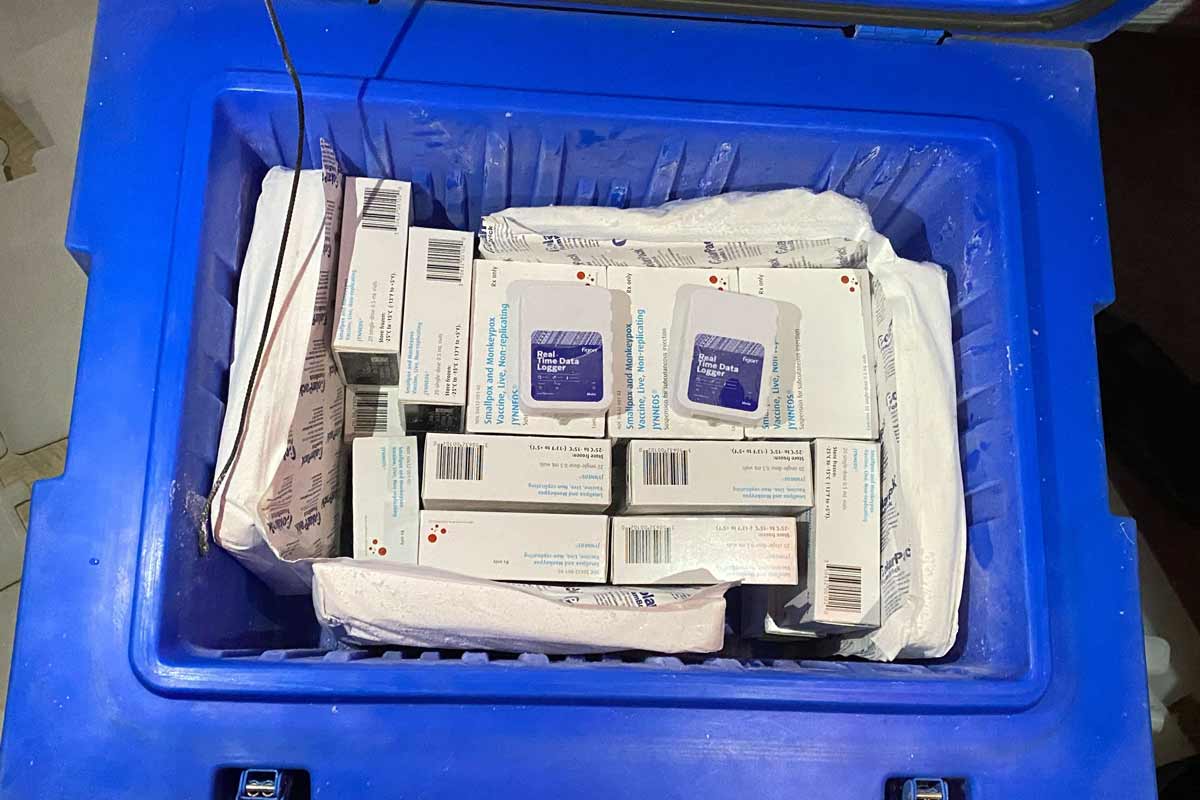
A framework for health security
Today, Figorr’s footprint touches 22 countries on nearly every continent. The platform tracks over 200 million items worth an aggregate of US$ 600 million across various sectors, ensuring quality from origin to destination.
Nigeria’s National Primary Health Care Development Agency (NPHCDA) , for example, leverages Figorr’s technology, improving insight into vaccine condition before use. The tracked quantities that have been safeguarded have included over 26 million doses of COVID-19 vaccines, millions of HPV vaccines and more than 15 million childhood vaccines. “Figorr’s system has transformed our vaccine distribution protocols, enhancing visibility and accountability,” noted Tochukwu Azuibike, a member of the logistics team at NPHCDA.
The combination of real-time monitoring, data integration, and infrastructure sharing equips organisations and agencies with the necessary tools to optimise their supply chains. “By eliminating inefficiencies and miscommunications, we can significantly reduce food and health product loss. Our goal is straightforward: to bring data-driven solutions to every player in the supply chain,” says Iortim.
The global impact
The need for advanced cold chain solutions spans continents and varies by region. Within Nigeria, a country prone to logistical challenges, Figorr addresses specific local needs. “When dealing with transportation delays and regulatory issues, we act as a safety net.” The platform played a pivotal role during the COVID-19 vaccine roll-out, ensuring that millions of doses maintained their integrity.
In contrast, in more developed regions, the technology contributes to reducing operating costs through shared cold storage facilities. “Just like Airbnb changed how we think about accommodations, we are redefining cold storage logistics,” Iortim elaborates.
With customers ranging from local farmers to multinational pharmaceutical companies, Figorr’s model is yielding success stories around the globe.
Innovating for sustainability
Adapting solutions not just for today’s challenges but also for future sustainability is embedded in Figorr’s ethos. As temperatures globally continue to rise due to climate change, the implications for cold storage logistics become more pronounced. “There’s an urgent need to standardise practices for temperature-sensitive goods. We need to use data analysis to identify weaknesses in the supply chain.”
Highlighting a case study from Lagos, Iortim recalls, “We had tracked Moderna vaccines arriving at the airport. Due to local regulatory hurdles, there was a risk that they would not be distributed in time, leading to significant waste. Our alerts notified health officials who quickly addressed the issue, saving products worth millions. We helped facilitate the efficient redistribution across South West states.”
Have you read?
A vision for the future
The vision for Figorr extends beyond merely managing cold chain logistics. “We want to utilise our robust data analytics platform to offer insights that can help insurance companies underwrite policies for health and agricultural products that are often deemed uninsurable.” This secures financial backing for businesses but also promotes a proactive approach to risk management.
As Figorr continues to expand its services and partnerships, the future of cold chain logistics looks a little brighter.
“Figorr's innovative work – notably in mapping existing infrastructure – aligns seamlessly with Gavi's mission to improve access to vaccines and healthcare in underserved regions,” said Bertrand Pedersen, who works on private sector partnerships and innovation at the Vaccine Alliance.
“By offering a marketplace for infrastructure leasing, Figorr addresses critical delivery challenges while creating additional revenue opportunities.”
Driven by user-demand and real-world challenges, Figorr is committed to scaling its innovative solutions – a true testament to African ingenuity making waves on the global stage. In an evolving landscape of health logistics, this is a powerful example of how technology can bridge gaps, optimise the transport of crucial goods worldwide and ultimately save lives.
